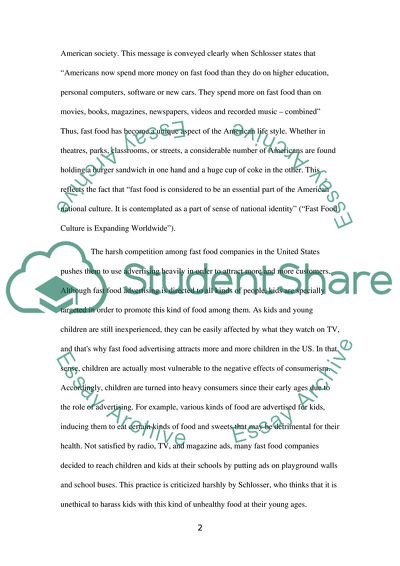Cite this document
(“Fast Food Nation Book Report/Review Example | Topics and Well Written Essays - 1500 words”, n.d.)
Fast Food Nation Book Report/Review Example | Topics and Well Written Essays - 1500 words. Retrieved from https://studentshare.org/miscellaneous/1585774-fast-food-nation
Fast Food Nation Book Report/Review Example | Topics and Well Written Essays - 1500 words. Retrieved from https://studentshare.org/miscellaneous/1585774-fast-food-nation
(Fast Food Nation Book Report/Review Example | Topics and Well Written Essays - 1500 Words)
Fast Food Nation Book Report/Review Example | Topics and Well Written Essays - 1500 Words. https://studentshare.org/miscellaneous/1585774-fast-food-nation.
Fast Food Nation Book Report/Review Example | Topics and Well Written Essays - 1500 Words. https://studentshare.org/miscellaneous/1585774-fast-food-nation.
“Fast Food Nation Book Report/Review Example | Topics and Well Written Essays - 1500 Words”, n.d. https://studentshare.org/miscellaneous/1585774-fast-food-nation.


